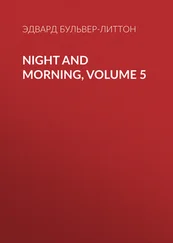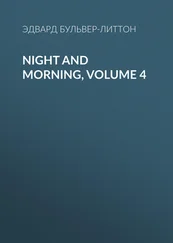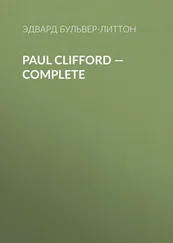Эдвард Бульвер-Литтон - Night and Morning, Complete
Здесь есть возможность читать онлайн «Эдвард Бульвер-Литтон - Night and Morning, Complete» — ознакомительный отрывок электронной книги совершенно бесплатно, а после прочтения отрывка купить полную версию. В некоторых случаях можно слушать аудио, скачать через торрент в формате fb2 и присутствует краткое содержание. Жанр: foreign_prose, literature_19, Европейская старинная литература, foreign_antique, на английском языке. Описание произведения, (предисловие) а так же отзывы посетителей доступны на портале библиотеки ЛибКат.
- Название:Night and Morning, Complete
- Автор:
- Жанр:
- Год:неизвестен
- ISBN:нет данных
- Рейтинг книги:3 / 5. Голосов: 1
-
Избранное:Добавить в избранное
- Отзывы:
-
Ваша оценка:
- 60
- 1
- 2
- 3
- 4
- 5
Night and Morning, Complete: краткое содержание, описание и аннотация
Предлагаем к чтению аннотацию, описание, краткое содержание или предисловие (зависит от того, что написал сам автор книги «Night and Morning, Complete»). Если вы не нашли необходимую информацию о книге — напишите в комментариях, мы постараемся отыскать её.
Night and Morning, Complete — читать онлайн ознакомительный отрывок
Ниже представлен текст книги, разбитый по страницам. Система сохранения места последней прочитанной страницы, позволяет с удобством читать онлайн бесплатно книгу «Night and Morning, Complete», без необходимости каждый раз заново искать на чём Вы остановились. Поставьте закладку, и сможете в любой момент перейти на страницу, на которой закончили чтение.
Интервал:
Закладка:
One day, it might be some three years and more after the fatal visit I have commemorated—one very wild rough day in early March, the postman, who made the round of the district, rang at the parson’s bell. The single female servant, her red hair loose on her neck, replied to the call.
“And how is the master?”
“Very bad;” and the girl wiped her eyes.
“He should leave you something handsome,” remarked the postman, kindly, as he pocketed the money for the letter.
The pastor was in bed—the boisterous wind rattled down the chimney and shook the ill-fitting casement in its rotting frame. The clothes he had last worn were thrown carelessly about, unsmoothed, unbrushed; the scanty articles of furniture were out of their proper places; slovenly discomfort marked the death-chamber. And by the bedside stood a neighbouring clergyman, a stout, rustic, homely, thoroughly Welsh priest, who might have sat for the portrait of Parson Adams.
“Here’s a letter for you,” said the visitor.
“For me!” echoed Caleb, feebly. “Ah—well—is it not very dark, or are my eyes failing?” The clergyman and the servant drew aside the curtains and propped the sick man up: he read as follows, slowly, and with difficulty:
“DEAR, CALEB,—At last I can do something for you. A friend of mine has a living in his gift just vacant, worth, I understand, from three to four hundred a year: pleasant neighbourhood—small parish. And my friend keeps the hounds!—just the thing for you. He is, however, a very particular sort of person—wants a companion, and has a horror of anything evangelical; wishes, therefore, to see you before he decides. If you can meet me in London, some day next month, I’ll present you to him, and I have no doubt it will be settled. You must think it strange I never wrote to you since we parted, but you know I never was a very good correspondent; and as I had nothing to communicate advantageous to you I thought it a sort of insult to enlarge on my own happiness, and so forth. All I shall say on that score is, that I’ve sown my wild oats; and that you may take my word for it, there’s nothing that can make a man know how large the heart is, and how little the world, till he comes home (perhaps after a hard day’s hunting) and sees his own fireside, and hears one dear welcome; and—oh, by the way, Caleb, if you could but see my boy, the sturdiest little rogue! But enough of this. All that vexes me is, that I’ve never yet been able to declare my marriage: my uncle, however, suspects nothing: my wife bears up against all, like an angel as she is; still, in case of any accident, it occurs to me, now I’m writing to you, especially if you leave the place, that it may be as well to send me an examined copy of the register. In those remote places registers are often lost or mislaid; and it may be useful hereafter, when I proclaim the marriage, to clear up all doubt as to the fact.
“Good-bye, old fellow,
“Yours most truly, &c., &c.”
“It comes too late,” sighed Caleb, heavily; and the letter fell from his hands. There was a long pause. “Close the shutters,” said the sick man, at last; “I think I could sleep: and—and—pick up that letter.”
With a trembling, but eager gripe, he seized the paper, as a miser would seize the deeds of an estate on which he has a mortgage. He smoothed the folds, looked complacently at the well-known hand, smiled—a ghastly smile! and then placed the letter under his pillow, and sank down; they left him alone. He did not wake for some hours, and that good clergyman, poor as himself, was again at his post. The only friendships that are really with us in the hour of need are those which are cemented by equality of circumstance. In the depth of home, in the hour of tribulation, by the bed of death, the rich and the poor are seldom found side by side. Caleb was evidently much feebler; but his sense seemed clearer than it had been, and the instincts of his native kindness were the last that left him. “There is something he wants me do for him,” he muttered.
“Ah! I remember: Jones, will you send for the parish register? It is somewhere in the vestry-room, I think—but nothing’s kept properly. Better go yourself—‘tis important.”
Mr. Jones nodded, and sallied forth. The register was not in the vestry; the church-wardens knew nothing about it; the clerk—a new clerk, who was also the sexton, and rather a wild fellow—had gone ten miles off to a wedding: every place was searched; till, at last, the book was found, amidst a heap of old magazines and dusty papers, in the parlour of Caleb himself. By the time it was brought to him, the sufferer was fast declining; with some difficulty his dim eye discovered the place where, amidst the clumsy pothooks of the parishioners, the large clear hand of the old friend, and the trembling characters of the bride, looked forth, distinguished.
“Extract this for me, will you?” said Caleb. Mr. Jones obeyed.
“Now, just write above the extract:
“‘Sir,—By Mr. Price’s desire I send you the inclosed. He is too ill to write himself. But he bids me say that he has never been quite the same man since you left him; and that, if he should not get well again, still your kind letter has made him easier in his mind.”
Caleb stopped.
“Go on.”
“That is all I have to say: sign your name, and put the address—here it is. Ah, the letter,” he muttered, “must not lie about! If anything happens to me, it may get him into trouble.”
And as Mr. Jones sealed his communication, Caleb feebly stretched his wan hand, held the letter which had “come too late” over the flame of the candle. As the blazing paper dropped on the carpetless floor, Mr. Jones prudently set thereon the broad sole of his top-boot, and the maidservant brushed the tinder into the grate.
“Ah, trample it out:—hurry it amongst the ashes. The last as the rest,” said Caleb, hoarsely. “Friendship, fortune, hope, love, life—a little flame, and then—and then—”
“Don’t be uneasy—it’s quite out!” said Mr. Jones. Caleb turned his face to the wall. He lingered till the next day, when he passed insensibly from sleep to death. As soon as the breath was out of his body, Mr. Jones felt that his duty was discharged, that other duties called him home. He promised to return to read the burial-service over the deceased, gave some hasty orders about the plain funeral, and was turning from the room, when he saw the letter he had written by Caleb’s wish, still on the table. “I pass the post-office—I’ll put it in,” said he to the weeping servant; “and just give me that scrap of paper.” So he wrote on the scrap, “P. S. He died this morning at half-past twelve, without pain.—M. J.;” and not taking the trouble to break the seal, thrust the final bulletin into the folds of the letter, which he then carefully placed in his vest pocket, and safely transferred to the post. And that was all that the jovial and happy man, to whom the letter was addressed, ever heard of the last days of his college friend.
The living, vacant by the death of Caleb Price, was not so valuable as to plague the patron with many applications. It continued vacant nearly the whole of the six months prescribed by law. And the desolate parsonage was committed to the charge of one of the villagers, who had occasionally assisted Caleb in the care of his little garden. The villager, his wife, and half-a-dozen noisy, ragged children, took possession of the quiet bachelor’s abode. The furniture had been sold to pay the expenses of the funeral, and a few trifling bills; and, save the kitchen and the two attics, the empty house, uninhabited, was surrendered to the sportive mischief of the idle urchins, who prowled about the silent chambers in fear of the silence, and in ecstasy at the space. The bedroom in which Caleb had died was, indeed, long held sacred by infantine superstition. But one day the eldest boy having ventured across the threshold, two cupboards, the doors standing ajar, attracted the child’s curiosity. He opened one, and his exclamation soon brought the rest of the children round him. Have you ever, reader, when a boy, suddenly stumbled on that El Dorado, called by the grown-up folks a lumber room? Lumber, indeed! what Virtu double-locks in cabinets is the real lumber to the boy! Lumber, reader! to thee it was a treasury! Now this cupboard had been the lumber-room in Caleb’s household. In an instant the whole troop had thrown themselves on the motley contents. Stray joints of clumsy fishing-rods; artificial baits; a pair of worn-out top-boots, in which one of the urchins, whooping and shouting, buried himself up to the middle; moth-eaten, stained, and ragged, the collegian’s gown—relic of the dead man’s palmy time; a bag of carpenter’s tools, chiefly broken; a cricket-bat; an odd boxing-glove; a fencing-foil, snapped in the middle; and, more than all, some half-finished attempts at rude toys: a boat, a cart, a doll’s house, in which the good-natured Caleb had busied himself for the younger ones of that family in which he had found the fatal ideal of his trite life. One by one were these lugged forth from their dusty slumber-profane hands struggling for the first right of appropriation. And now, revealed against the wall, glared upon the startled violators of the sanctuary, with glassy eyes and horrent visage, a grim monster. They huddled back one upon the other, pale and breathless, till the eldest, seeing that the creature moved not, took heart, approached on tip-toe-twice receded, and twice again advanced, and finally drew out, daubed, painted, and tricked forth in the semblance of a griffin, a gigantic kite.
Читать дальшеИнтервал:
Закладка:
Похожие книги на «Night and Morning, Complete»
Представляем Вашему вниманию похожие книги на «Night and Morning, Complete» списком для выбора. Мы отобрали схожую по названию и смыслу литературу в надежде предоставить читателям больше вариантов отыскать новые, интересные, ещё непрочитанные произведения.
Обсуждение, отзывы о книге «Night and Morning, Complete» и просто собственные мнения читателей. Оставьте ваши комментарии, напишите, что Вы думаете о произведении, его смысле или главных героях. Укажите что конкретно понравилось, а что нет, и почему Вы так считаете.












